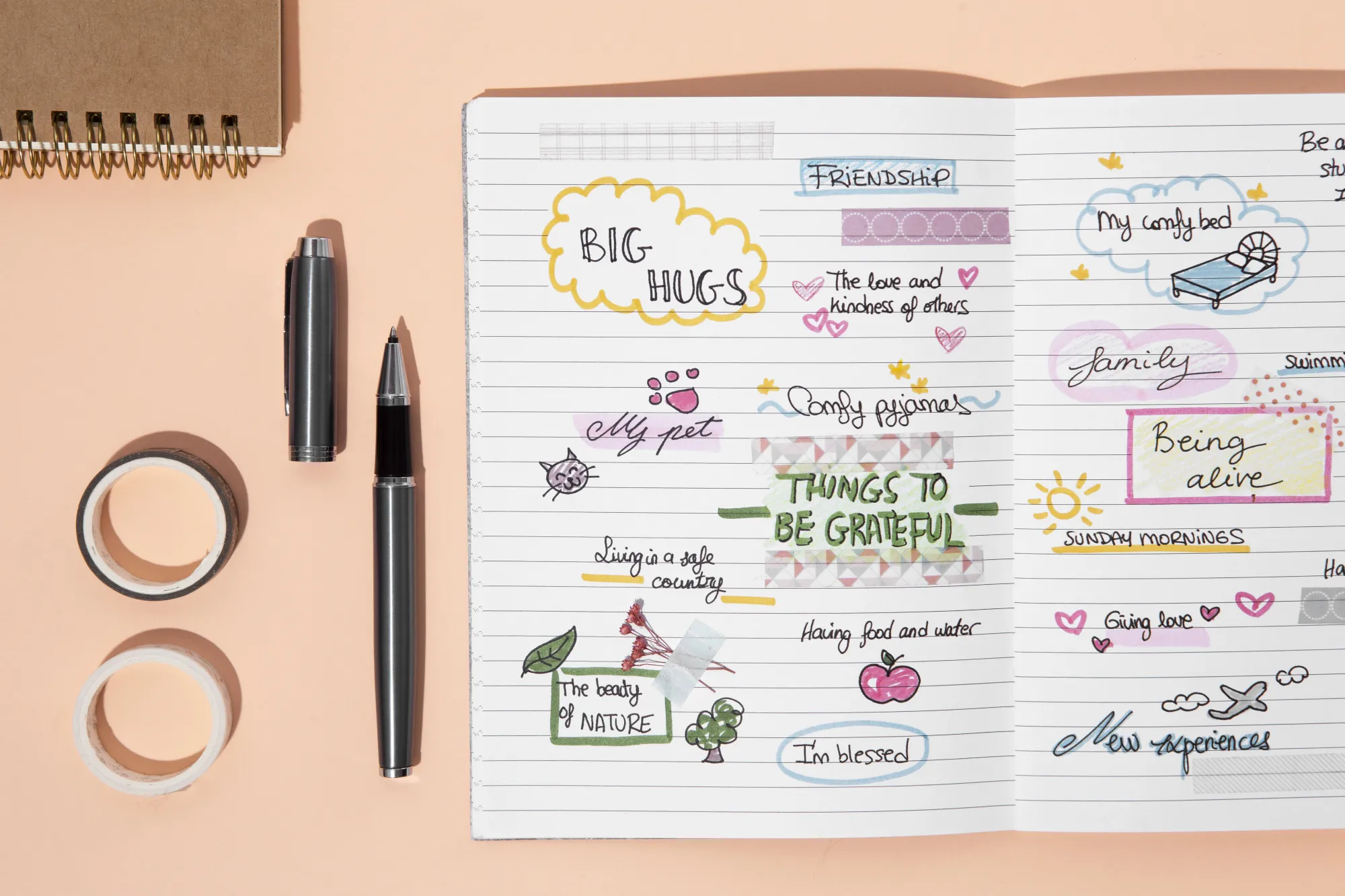
Journaling is more than just writing down thoughts on a page—it’s a powerful tool for self-reflection, personal growth, and emotional well-being. Whether you’re looking to manage stress, track your goals, or simply capture daily experiences, journaling can be a transformative practice. If you’ve never tried it before, getting started might feel overwhelming, but it doesn’t have to be. Here’s a step-by-step guide to help you begin your journaling journey.
1. Understand the Benefits of Journaling

Before diving into journaling, it helps to understand why it’s worth the effort. Journaling allows you to:
- Clarify your thoughts and emotions: Writing helps you process complex feelings and gain clarity on challenges.
- Track progress: Journals are a great way to monitor personal goals, habits, and achievements over time.
- Boost creativity: Free-writing in a journal can spark new ideas and insights.
- Reduce stress: Expressing your thoughts on paper can serve as a therapeutic outlet for anxiety and tension.
Knowing the benefits makes it easier to stay consistent, especially when you’re just starting out.
2. Choose the Right Journaling Medium
Journals don’t have to be fancy, but picking a medium you enjoy is key to making journaling a habit. Options include:
- Traditional notebooks: A simple, bound notebook is perfect if you like pen-to-paper writing.
- Digital apps: Apps like Evernote, Day One, or Notion allow for convenient, on-the-go journaling.
- Bullet journals: Ideal for combining creativity, planning, and reflection in one place.
Choose what feels comfortable and accessible, as this will encourage regular use.
3. Decide on a Journaling Style
There’s no one “right” way to journal. Experimenting with different styles helps you discover what resonates most:
- Free-writing: Write continuously without worrying about grammar, structure, or punctuation.
- Gratitude journaling: Focus on things you’re thankful for to cultivate a positive mindset.
- Reflective journaling: Reflect on daily experiences, emotions, and lessons learned.
- Goal-oriented journaling: Track progress on personal or professional objectives.
You can stick to one style or mix multiple approaches depending on your needs.
4. Set a Routine

Consistency is crucial in journaling. Even a few minutes each day can have a significant impact over time. Here are some tips to build a habit:
- Choose a fixed time: Many people journal in the morning to set intentions for the day or at night to reflect on experiences.
- Start small: Begin with 5–10 minutes per day or just a few sentences. You can gradually increase as it becomes a habit.
- Create a ritual: Pair journaling with a cup of tea, soft music, or a quiet corner to make it a pleasant, sustainable routine.
5. Don’t Worry About Perfection
One of the biggest barriers to journaling is the fear of writing poorly or not being interesting enough. Remember, your journal is for you, not for anyone else. Embrace imperfection, write freely, and allow yourself to explore thoughts without judgment.
6. Use Prompts for Inspiration
If you’re unsure what to write, prompts can jumpstart your creativity. Some examples include:
- What am I feeling right now, and why?
- What are three things I’m grateful for today?
- What challenges did I face today, and how did I handle them?
- What is one thing I want to accomplish this week?
Prompts can make journaling less intimidating and more structured when needed.
7. Review and Reflect

Journaling isn’t just about writing—it’s also about learning from your entries. Periodically review your journal to notice patterns, track growth, and celebrate achievements. Reflection helps you gain deeper insights into your behavior, emotions, and life direction.
8. Be Patient with Yourself
Like any habit, journaling takes time to establish. Some days, you might struggle to write, and that’s okay. What matters is persistence and maintaining a gentle, forgiving attitude toward yourself. Over time, journaling can become a cherished part of your life.
Conclusion
Starting a journal can feel daunting, but with the right approach, it becomes a fulfilling and transformative practice. By understanding the benefits, choosing the right medium, experimenting with different styles, and establishing a routine, you can make journaling an integral part of your daily life. Remember, your journal is your personal space—a place to explore, reflect, and grow. Start small, stay consistent, and watch as this simple habit gradually transforms your mind, your emotions, and your life.
